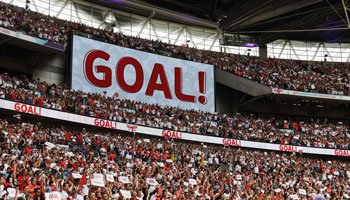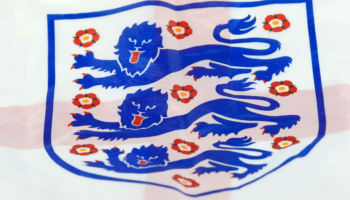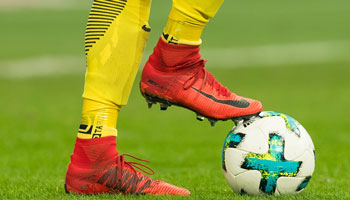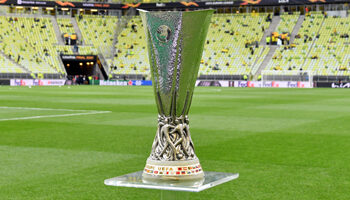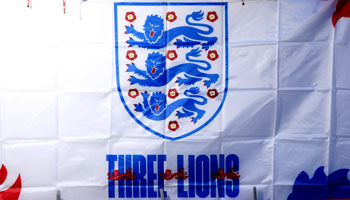On coaching Cardiff Metropolitan University Football…
“It’s a very unique situation to coach university football because, first and foremost, students are focused on university study and playing football is a secondary focus. Everything is based around study, so you’re balancing their studies with training and games.
“I’m an academic myself, so I make sure all my players are performing well in their studies first, and then making them better footballers second. We work training around study, as much as I’d like to train full time.
“We train twice a week, Monday and Thursday, and then have two games a week; the British University Championships (BUCS) on a Wednesday and then on the weekend, where we ply our trade in the Welsh Premier League. So, although it’s not full time, it may as well be considering how much contact time we have with the players. It’s an incredibly rewarding opportunity to coach these young men.”
On the university system failing to supplement English football like the American college football system does for the National Football League…
“I think it’s a completely different beast to be honest. I don’t know much about the American system, but I know that the colleges are very heavily funded towards sports to facilitate the professional teams. A lot of universities in the UK focus on education first and then sport is secondary.
“What I will say however is there’s fantastic sporting talent across the board in British university sport, not just in football. Just look at hockey, swimming and netball here in the UK, there are some fantastic individuals operating in these sports.
“With regards to football and university sports, we have to accept that most of, if not all, football prospects in this country between the ages of 18 and 21 would be at professional football clubs by now. Saying that, there are students who choose the academic pathway first and then attempt a professional career in football or the reverse, where young men are not good enough to turn professional or get released and then revert to university sport.
“I think there are certainly examples we can draw on where players come from the university ranks. Chris Smalling (below), now at Manchester United, was an ex-Loughborough student and Matt Smith at Fulham used to play for the University of Manchester, so there are a few students who have made it.
“For the professional football clubs out there, the university system is a fantastic place to grab a relatively good and inexpensive player.”

On whether he thinks enough scouts from football clubs come to university games…
“I do. Being a director of football at Cardiff Metropolitan University, I witnessed a whole host of scouts watching and looking for players at our match last Wednesday when we were crowned BUCS champions.
“One of the universities in England, Hartpury College, has huge links with African football and they’ve brought lots of African players over to the university. A lot of them then go to the pro game in Norway and Turkey, with the likes of Trabzonspor, to represent the African countries.
“There are clubs out there watching university sports, but I suppose they’re just making sure they choose the right player available at the right time.”
On if there is more potential for partnerships between football associations around the world and UK universities…
“Yes, I think the strategic game for universities these days is to align with the international curriculum. This will allow them to expand into Africa, the Far East and potentially America and bringing these students across.
“It’s something all universities are looking to do and the likes of Durham and Northumbria in the North have big American partnerships where students have scholarships for football, volleyball, basketball, so there are partnerships there to be exploited.”
On any players in university teams that could make it professionally…
“We recently played Loughborough University and there is a young player there called Ben Last who was incredibly exciting and could absolutely make the jump. There was another player there who had been on trial at Rochdale and a couple of lads at my own university that I think could possibly make the step up.
“I think we have to be realistic and say most of them won’t play in the Premier League, but I certainly think there’s a couple who can play in the lower leagues. I respect the fact that there are fantastic players in League One and League Two so it’s not a given they’ll make it.
“There is a big jump but with everyday training and good coaching behind them, I don’t see why players operating in the university system can’t make that jump.”
On whether university players being too late in their development is the main reason why they don’t make it?
“Potentially, but I also think in the pro games some players get released for different reasons, and they come again. You hear historical stories of Ian Wright (below) back in the day and there were quite a few who made it back from being released.
“I think the perception of the 18-21 age bracket is that they’re too late and I’ve got players in my squad who are doing postgraduate studies to become doctors – they’re 23-24, so it’s possible a bit too late for them. But if I were coaching the professional game, I would be scouring the university market to see what I can take back to the professional game.
“These students are incredibly hungry to succeed, they dream about being professional footballers, eager to learn and some clubs need to take a chance on them.”

On his current role at the university having dropped out of the professional game…
“I’m a doctor now, having completed my PhD over a year ago. After retiring in 2006, having fallen out of love with the game, I decided to go back to study, and I enjoyed studying when I was in school so it was a natural move.
“I thought about being a PE teacher but that never materialised, and then decided upon doing a Masters degree and then ending up doing a PhD in Sociology. In 2016 I became a doctor and I currently work at Cardiff Metropolitan University, where I’m a lecturer. It’s something I didn’t think would happen, but it has and I’m incredibly proud.”
On whether there’s enough support/framework for players who retire young due to injury or fall out of the game…
“When I left the game in 2006, there wasn’t really much in place for myself. The transition for me was quite simple though. It was quite easy. I knew what I wanted to do. There are unfortunately some players who do exit the game and the transition is not as smooth and we’ve heard stories where people battle the demons, and that happens unfortunately.
“Footballers are creatures of habit, we love structure. I certainly love structure in my life. When you are not in the daily routine, teaming up at training or camaraderie with team-mates in the dressing room, it can become a lonely place.
“I was lucky to have a focus. So from my perspective it wasn’t phased but I’m sure over the years the PFA have been working hard on putting some kind of framework in place that will assist players in leaving the game or turning to a coaching role.
“Players are readily turning to getting their coaching badges and stay in the game, but that’s not something I wanted to do. I had some very good coaches and some very indifferent ones and witnessed the dark side of the game as a result.
“I never really wanted to go back and never really wanted to coach football in the professional game, which is why I opted for the career pathway as an academic. Having been working in academia, there are some kinds of framework for players but I feel they can be far more robust and more accessible ones, making players aware what is there for them. But it also depends on the players as well if they want to do it.”
On what effect university education has on football and how university footballers approach games – is it any different to the professional game?
“It depends on what career path you’ve taken. I suppose if your career path aligns itself with psychology, then a lot of players would believe psychology underpins what you currently need to better perform.
“My academic profile doesn’t align psychology, it’s more in sociology, so I have a different viewpoint on how coaching is perceived and how players perceive coaching. In academia, we’re always trying to fight the tide and support professional sports.
“Many disciplines from an applied nature do it properly, others not so well. We’re trying to help through education programmes, specifically on football, and we’re slowly getting there but I still think we can influence it more.”
On if there’s enough psychological and sociological support for professional footballers in the current game…
“I think you can have a recent example at Swansea City where they had Dr Ian Mitchell (below, left) in place as a sport psychologist to help players with all matters of sports performance. So I think there are frameworks in place and support networks for players with regards to psychological aspects of sports.
“Unfortunately there’s a misconception that if you are going to see a psychologist, then you have a ‘problem’. I don’t think that’s the case. I think psychology can help the players in a variety of ways, not just when they have problems.
“From my perspective of where my discipline comes from, it’s more about the relationships we’re trying to build and interactions that we have, and how we can make those relationships better and more prosperous in order to work together into a better way.
“So essentially they are two totally different and contrasting ways of looking at the sports performance but equally as valuable from my perspective.”

On relationship process/types in football differing from everyday life…
“I see sport and football being a part of everyday life. There’s no difference in a team interacting in a dressing room than there is people interacting in a call centre. People work in a culture that you need to work as a part of a team and how they interact in that team is exactly the same as how football players interact in the dressing room.
“There’s no doubt it’s the same. Maybe it’s a little bit different because it’s conceptual and there are different concepts of different perspectives. There are obviously comparisons between employees and their bosses in other walks of life. I know some people feel that sport is not a part of daily life but we all take part in sport in different ways, so it is essentially daily life.”
On university sport funding cuts and how they impact performance…
“I think unfortunately it’s society in general at the moment. Everyone wants money and not everyone can have it. Sport has been used as a vehicle by the government for many years, and universities are no different. We try to make sure sport is an experience for all students, and it’s an enjoyable one.
“If you operate at an elite level of university sports or operate at the participatory level, everyone wants some money. Unfortunately, money is quite thin on the ground. It’s how the university are able to use that money in the best and productive way.
“It is a challenge for all, we all work under the restrictions. I would love to go out and spend extra amounts of money on players to help them with tuition fees and the everyday things they go through but unfortunately we don’t.
“As a result, I work harder as a coach to make them a better player. Everybody is struggling with finance, whether it’s a sporting institution or a bigger university. They have different agendas for my university. We have different tutor aims related to student recruitment, sport participation, enterprise, research and every university needs to have a huge amount of research that outputs in order to be classified as a research university.
“So it is very difficult for the universities. I don’t know the answer but you’ve got to keep working and plough on through it.”
On tuition rises for students and whether this prices out good footballers from going to university…
“It’s tough, the university fees are rising. I think it’s down to universities to make sure they can justify those pricings and put on a good product, good curriculum and good student experience. I can only imagine it does put students off but there is lots of student support and help that students can get to be able to get access funding.
“There is a lot of funding out there for students. In order to be able to undertake a pathway in education they get a degree that allows them to get a very good job at the end of it.”
On the positive effect international students are having on UK sport and football in particular…
“I think international students are absolutely positive for sports in this country. They bring fantastic work ethics, they are enthusiastic and bring different cultures to the environment. There’s a positive effect on the group you work with, so for me I think it’s fantastic.
“International students bring greater fees, so the universities are generally happy. The international students are very good for the universities, and these institutions become global brands with the fact that they can highlight their international students. So there’s only positive I can speak for.”
On university sport/football growth in the next five to 10 years…
“We have our restrictions. I think funding is always an issue and all universities want to have the best student football players available. It comes down to the students to make a choice to go to which universities they want to be at.
“I think for a lot of institutions, players will see what they can get in an explicit manner rather than an implicit one. For example my team, Cardiff Met, was just crowned the British champions last Wednesday. We’re also recognised as the best football program in the UK, but we don’t offer any type of funding for players.
“Some universities might waive some costs, reduced fees, maybe paid accommodations, so it’s not always the best universities that have the best players, it depends what universities can offer. I have good relationships with the likes of the University of Bath and speak to the director of football there regularly and we all have the same types of problems getting in the best players.
“But you have to work with what you’ve got. I’d like to think in five years that may change but it probably will not. You have to do the best you can under the circumstance you find yourself in.”
On Graeme Souness’ recent comments that Swansea City are too nice for the Premier League and will suffer as a result…
“I think it’s an interesting comment. You could possibly argue under the management of Bob Bradley it looked that way. We seem to have a bit more resilience about the team at the moment. We had a pick up in results under Paul Clement in the initial stages but results possibly haven’t gone our way in recent weeks.
“Maybe Swansea has always been classed as the nice soft team, everybody’s second favourite team. But I can assure you Paul Clement is working hard to make sure they are not that soft and nice and they dig themselves out of the situation they currently find themselves in.”

On whether Paul Clement’s introduction has resulted in a grittier, more organised team…
“I think Paul has got the team organised in his own way. It doesn’t mean what Bob Bradley did was wrong. It’s just he has got them set up in his way and his way seems to be productive and organised.
“People talk about the Swansea way and how that was instilled many moons ago by Roberto Martinez, and a touch in Kenny Jackett, but teams have been able to play against it and find joy doing so. So it has taken a manager to decide to do it slightly differently, yet still within the normal principles they try to apply.
“It’s been difficult with the takeover and the fans want more money spent on players during the transfer windows but it’s important that Paul Clement and the players stay in the Premier League this year, and then they can get back on to the grounding they were the season before last.”
On Paul Clement’s comments that star player Gylfi Sigurdsson doesn’t get the credit he deserves because he plays for Swansea…
“I absolutely agree. If Gylfi Sigurdsson was playing in a team in the top six he would be spoken about week in, week out. He’s a fantastic football player.
“Swansea can’t afford to bring in the quality players other teams higher up the table can and you saw with Cardiff a few seasons ago that they couldn’t compete and went down as a result and have struggled since. The adage has been mentioned a few times that you shop in Waitrose in the Premier League and drop out into other divisions and shop in totally different places.
“It’s important. I don’t mean to be disrespectful to the clubs in the Championship but every team want to plays in the Premier League. It’s important for every manager, every chairman and fan to want their club in the top division.
“I can remember playing back in the 90s, the Premier League was a million miles away from what I experienced as a Swansea City player. It’s not always bad to think back and be appreciative of what we’ve got at the moment.”
On if Swansea are too reliant on Sigurdsson…
“I read that he’s contributed to roughly half of Swansea’s goals – I think that tells its own tale. One individual player contributing to half of the outcome of Swansea’s goals scored tells you that other players have to chip in and I don’t think enough players at Swansea are doing that.
“Every team wants a prolific goalscorer, and Swansea had one a few years ago with Wilfried Bony, but they’ve found it very difficult to fill the hole that he left. We need someone to take the pressure off Gylfi.
“If the defenders and wingers were chipping in then it would be easier on the team but it is what the manager has been working hard to eradicate and I really hope they can do that and we can see ourselves in the Premier League next year.”

On why Fernando Llorente hasn’t performed the way many expected he would…
“Maybe he hasn’t contributed the goals that people are expecting he would have when he arrived. I’d argue his performances in recent weeks have been quite solid. I think during the turn of events when Swansea won two or three on the bounce, he was the main figure and the reason why that happened.
“It’s always tough to be a target man, being isolated up there and maybe we can get players to play around him a little bit more often. I think he was a great signing because Chelsea were talking about him in the transfer window, but his performances have gone under the radar slightly.
“So it’s a tough one but I think he has done well. It’s a shame when you’re asking two players to contribute so heavily to output when there are 11 players on the pitch.”
On Alfie Mawson…
“I think it’s a trait of British people to big a player up and then shoot him down. Alfie is a fantastic player and it’s important that he keeps on putting in solid performances and doing what he’s always done.
“He’s been a revelation since he joined under tough circumstances in replacing Ashley Williams, one of the cult heroes of the club. There was an air of doom and gloom when Ashley left so to fill his shoes in such a short space of time is testament to Alfie’s determination to succeed.
“In all honesty, I think he needs to continue to step up his performances and carry on playing as many times as he can and if the clubs are interested they will come. It’s a fantastic football club that plays nice football with a good manager so he’s in the right place.
“I don’t think he’s a bad player at the moment, he needs to keep on learning the trade. Everyone nowadays wants a John Terry-type defender with John Stones’ playing ability, and they certainly don’t come around often.
“If we could mould that type of player, we’ve got one hell of a centre-half. He needs to hone his attributes and continue to develop and I’m sure he could be a fantastic defender.”
On if he can emulate Ashley Williams’ success…
“I think they are two different individuals but he certainly has the ability to do what Ashley Williams did for Swansea. He helped the club from one level to the highest level. It’s a real shame he had to leave, probably for the right reasons, but Alfie has the ability to do so. Like Ashley, he’s very unassuming, just doing what you’re best at and being implicit rather than explicit.”
On a prediction for the season, will they stay up?
“I’d like to say I hope so.”
On the director of football role in football and whether it’s undervalued…
“It’s an interesting role. Again at the university I operate at, every sport has a director now and we have around about 12 teams of classic sports. When I came to the university in 2006, I graduated in 2009. They asked me to take over this football program and I queried what that would entail and once explained to me, I naturally assumed the role of director of football.
“Within that role I am first-team manager, head coach, chief kit washer and so on. I naturally had that position to begin with but with the success of the club on and off the pitch, I’ve assumed a different role. I still coach on Monday and Thursday and still lead on a Wednesday and Saturday.
“What I tend to do a lot more now is recruitment of players into the football club, visiting various trials around the country to spot talent to join the program. We constantly, throughout the course of the year, speak with potential students coming in. I look then to set up partnerships to the colleges.
“I have been in discussions with the Welsh colleges that they feed in to our university so that I get first refusal, so it really creates the links for external partnerships so the football clubs have a stronger structure.
“I’ve also been part of setting up a UEFA academy at the university, with an academy director that works there, but we all work together with some of the other coaches at the football club to set up. So essentially it’s the everyday workings of the football club with the coaching on top of that.
“As my time at the university has grown, so too has my role. You get to see different insights, and it’s a role I currently really enjoy. My teaching commitments have taken off so I’ve taken a bit of a backseat with some of the coaching.
“I’m more involved with driving the future of the football club to make sure that it’s prosperous so when I finally do walk away, there will be a very strong structure in place for the next one who comes to take over. It’ll be a lot easier than when I took over that’s for sure – it was an absolute mess.
“How it happens at a professional level is really interesting. When I was at Bristol Rovers, we had Paul Trollope, who took over as manager and then he had Lennie Lawrence come in with him (below) and Lennie acted as a director of football. He was on the training ground once, maybe twice a week, but his main role was doing the things that Paul wasn’t used to; contractual negotiations with agents and players, the relationship with the chairman and the manager, a middle man.
“In many ways, you can term it as a mentoring role for a younger manager to come in and Dougie Freedman had the same when he managed at Crystal Palace. I think it certainly makes sense when you have young managers.
“I think the Arsenal model with Arsene Wenger potentially going upstairs and acting in that role whilst a new manager comes in could be the case, but that’s a totally different dynamic. If I was a manager going in to that club with Arsene sitting upstairs, similarly to how David Moyes must have felt with Sir Alex Ferguson looking over his shoulder, I would feel uncomfortable with that.”

On whether there could ever be a director of football above Arsene Wenger…
“That would certainly be interesting. I think we had the situation at Liverpool where there was a sporting director in charge of transfers – it’s a disaster from the start. As a manager, in the Premier League or any league, you want to have full control of the players you’re bringing in to the club. One of the few things managers want is to be valued on the judgement of someone else’s players. I wouldn’t want that.
“The dynamic at Arsenal is very different whereby Arsene has been at the club for 21 years, so whoever comes in would immediately face the challenge of getting Arsene to listen to him. The power dynamic of that relationship would be something I would want to study as a part of my academic research. If I was to be blunt, absolutely not.”
On whether the Wales players lost their heads following the tackle by Neil Taylor on Seamus Coleman and Gareth Bale’s tackle earlier in the game…
“No, I don’t think they lost their heads. I watched the game and it was a difficult game for both sets of fans and players – cancelling each other out. So it’s tough for both sets of players.
“I’m not Neil Taylor, but having looked into the incident, knowing Neil Taylor was subject to a similar injury in the past, I don’t think there was any maliciousness to the tackle whatsoever. I’m sure if he thought that was the case he would’ve pulled out straight away.
“It’s a tough one and I simply don’t accept people that say that he meant it. It’s a challenge as part of football and every player risks such an injury because of how fast and physical the game is. I’m sure Neil didn’t mean it, but when you tackle that high, you leave yourself open to interpretation. It’s a tough injury for Seamus.”
On whether “he’s not that type of player” is a reasonable justification for such a tackle…
“I don’t know is the honest answer. I don’t know Neil Taylor personally but I’d like to think he’s not that type of player. Whether that’s a justifiable defence is difficult to say because the only way you can really prove that is by going through every tackle he’s ever made, red or yellow card offence, and see for yourself and make a judgement. The only person who can answer that is Neil himself.”

On a tough start to the World Cup qualifying campaign…
“As a Welshman living in Wales, that 2016 Championships was a dream, the atmosphere was phenomenal. What they achieved was nothing short of incredible and I think Chris (Coleman) will be missed as a result if he decides to call it a day.
“He’s got two superstars and some really good players supporting them and Chris galvanised that team and nation – everyone bought in to what he had and the togetherness that ran through that team and this country was amazing.
“I have to say it’s unexpected for me. I didn’t see them progressing out of the group but they did, with a certain way of playing and charm. Despite the semi-final loss, I think Wales was the real winner of that tournament.
“Unfortunately it was always going to be tough to replicate the success they had last year and I think expectations to qualify this year are heightened because of last year’s success – which is tough on the coach and team. So far we’ve drawn four and won one, so it’s not been the best of starts.”
On Chris Coleman’s quotes about potentially quitting as coach of Wales and where he’d go if he left…
“I think he’ll go abroad, where that is I’m not sure. He could go to China and follow the money. He’s tried Spain so I don’t know but I’m sure wherever he’ll go, he’ll succeed.
“He came into the Welsh set-up under very difficult circumstances with the passing of Gary Speed. Gary created some fantastic foundations for the team and Chris used that and put his own stamp on the team – I think he got the blend right. It’ll be a real shame he leaves.”
On who will replace Coleman if he leaves…
“There’s so much talk these days about potential replacements and I have no doubt that Ryan Giggs’ name will be thrown in to the hat very quickly because he’s a Welshman and he’s currently out of a job.
“It’s certainly an interesting proposition and I think the next manager to come in will really have to think about what sort of identity he wants to create as Chris did. It’s a difficult choice but an important one.”
On whether the realisation that Coleman has taken Wales as far as he can take them is the deciding factor if he leaves…
“Everyone has a shelf life, you can see that at Arsenal with Arsene Wenger with it potentially being the right time to leave and the same can be said about Chris. What else could he possibly achieve after last year? I think he probably has taken the team as far as he can take it.
“The one thing that might keep him in the job is his determination to bring in fresh blood to the team and begin the next phase of Welsh football with some of the emerging talent. It’s a real shame because they haven’t lost and that’s the hardest bit.”

On whether appointing Ryan Giggs is too big a jump…
“Potentially. Based on what the press were saying, I think Ryan had discussions with Swansea before Paul Clement arrived. He’s been touted but I think that could count against him for the national team.
“Wales will want someone with significant experience, international experience. I don’t think he’s the people’s choice, but his name will always be bandied around because he has legendary status.”
On if there are any potential breakout stars to emulate Gareth Bale and Aaron Ramsey…
“There are some really good players coming through. Last year I watched the young striker from Everton, Nathan Broadhead, play against the Czech Republic for Wales Under 19s and he is an exciting player to keep an eye on.
“I think the one everyone talks about at the moment is Ethan Ampadu. I played with his father Kwame at Swansea and he’s now a youth coach at Arsenal. He’s got all the aspects needed to go to the next level and beyond.
“It’s been building up over the years and they’ve put structure in place for young players coming through and we have to remember we’re a nation of rugby lovers so we’ve always been up against rugby. But the Euros showed that we can produce some great players and we have a global superstar we can attach ourselves to and young players look up to and aspire to be – my son has several football shirts with Gareth Bale on the back.”
On Nottingham Forest, Mark Warburton and Britt Assombalonga…
“Mark Warburton has a fantastic profile, especially when he was at Brentford, and then went to Rangers and had success but for whatever reason it didn’t work out. He’s come to Forest, which has constantly lived in the shadows of Clough and the European success in the 80s, to re-establish the club.
“Nottingham Forest have the potential to be a Premier League club, they just need to concentrate on staying in the division this year and build over the next few years so they can put a charge on promotion.
“It’s tough when star players like Britt aren’t performing well and the results aren’t going your way. Unfortunately as the star player and main man up top, you’re going to receive the brunt of fans’ anger. I don’t know why they’re booing but it’s important as a club to stick together.”



